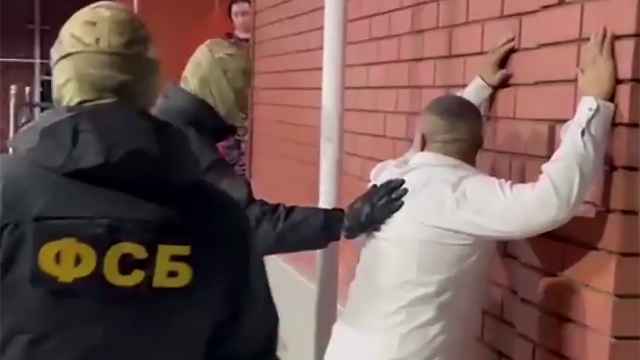A total of 780 people have been freed as a result of the business amnesty that came into effect in July, a far cry from the thousands that were expected to be let go.
“As of Sept. 1, the amnesty had been applied to 780 people. Of those, almost 310 were accused of fraud in the sphere of financing, and 145 of violating intellectual rights and associated rights,” the Prosecutor General's Office said in a statement Wednesday.
Apart from that, 120 people convicted of unlawful business activity were freed of criminal liability, and nearly 60 convicted of fraud in the sphere of business activity received amnesty.
The amnesty plan, which took effect July 4, extended economic amnesty to all those convicted or accused of crimes listed under Article 159 and 160 — fraud and embezzlement — in the Criminal Code, with the main condition being that the accused repay stolen funds or compensate for damages incurred.
The initiator of the legislation, business ombudsman Boris Titov, originally said the amnesty could free more than 6,000 people within a matter of months.
But the prosecutor's office attributed the low number of amnesty cases to numerous violations made by investigators in the process of applying amnesty, mostly involving criminals who had not fulfilled the requirement of returning stolen property or funds.
“There have also been cases of amnesty being applied to individuals who, in addition to the crimes listed in the Duma's decree, committed other crimes. There were also violations of the requirements set out by the Criminal Procedure Code, committed by investigators and interrogators in making procedural decisions,” the statement said.
Prosecutors across the nation were forced to cancel 22 resolutions ordering amnesty due to violations. Of that amount, 14 were canceled because the accused had not returned stolen property or funds or provided compensation for the damages incurred.
Another five resolutions to close criminal cases were canceled as a result of violations made during the procedural process.
A Message from The Moscow Times:
Dear readers,
We are facing unprecedented challenges. Russia's Prosecutor General's Office has designated The Moscow Times as an "undesirable" organization, criminalizing our work and putting our staff at risk of prosecution. This follows our earlier unjust labeling as a "foreign agent."
These actions are direct attempts to silence independent journalism in Russia. The authorities claim our work "discredits the decisions of the Russian leadership." We see things differently: we strive to provide accurate, unbiased reporting on Russia.
We, the journalists of The Moscow Times, refuse to be silenced. But to continue our work, we need your help.
Your support, no matter how small, makes a world of difference. If you can, please support us monthly starting from just $2. It's quick to set up, and every contribution makes a significant impact.
By supporting The Moscow Times, you're defending open, independent journalism in the face of repression. Thank you for standing with us.
Remind me later.





